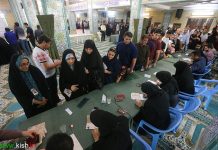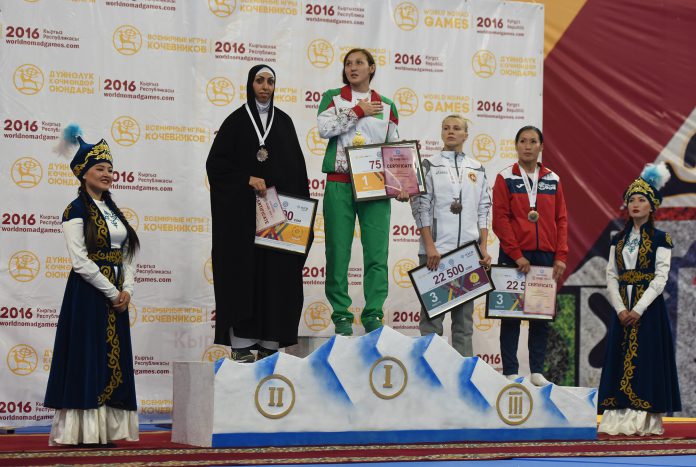
In Feb 1998, the first official representatives of the USA entered Iran after the Islamic Revolution and the conflicts between the two countries about the American hostages in Iran. The American and Iranian wrestlers were to fight in the final round of an international tournament. The 12000 Iranians in the stadium saw this not a simple match but a real fight between the two countries. When Abbas Jadidi defeated Melvin Douglas for a gold medal in extra time, the stadium was exploded! But that wasn’t the end. Melvin stood on the second position holding up a framed picture of the Iranian supreme leader, Ayatollah Khamenei next to Abbas! For years, it was said a symbol of how the nations might get closer while the states are far behind (Read the Los Angeles Times report at that time).
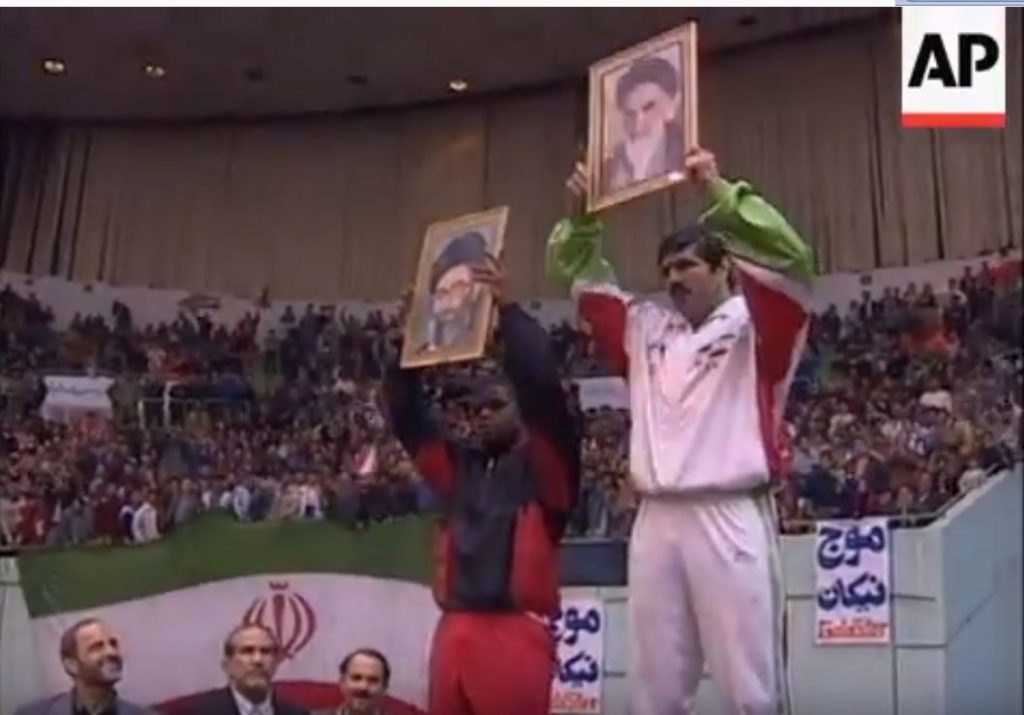
But the sports-politics combination has had lots of other examples in Iran. It was just a few weeks ago when Iranians were angry and depressed about what was going on in the country (link here) when suddenly the Asian Football Confederation (AFC) announced that Iran is banned from hosting any Asian football championship league matches. The reason was declared to be the unsafe situation in the country after the threats of the US and Iran’s miss-shooting the passenger airplane. This message was so unacceptable for the Iranians that almost everyone perceived it as a fully political decision. In recent ten years -at least- there has been no terroristic attack or airstrike around Tehran except one which took place two years ago by four ISIS terrorists and this is the case despite major conflicts with the US and terrorist groups like ISIS during all these years. Moreover, the passenger flights from all over the world started their normal schedule from and to Iran just a few days after and it shows there’s no concerning military threat in Iran now again. Therefore, Iran stood in front of this decision by announcing that no Iranian teams will attend the matches in this league in case AFC doesn’t change it. This was just one example of politics and sports mix-up!
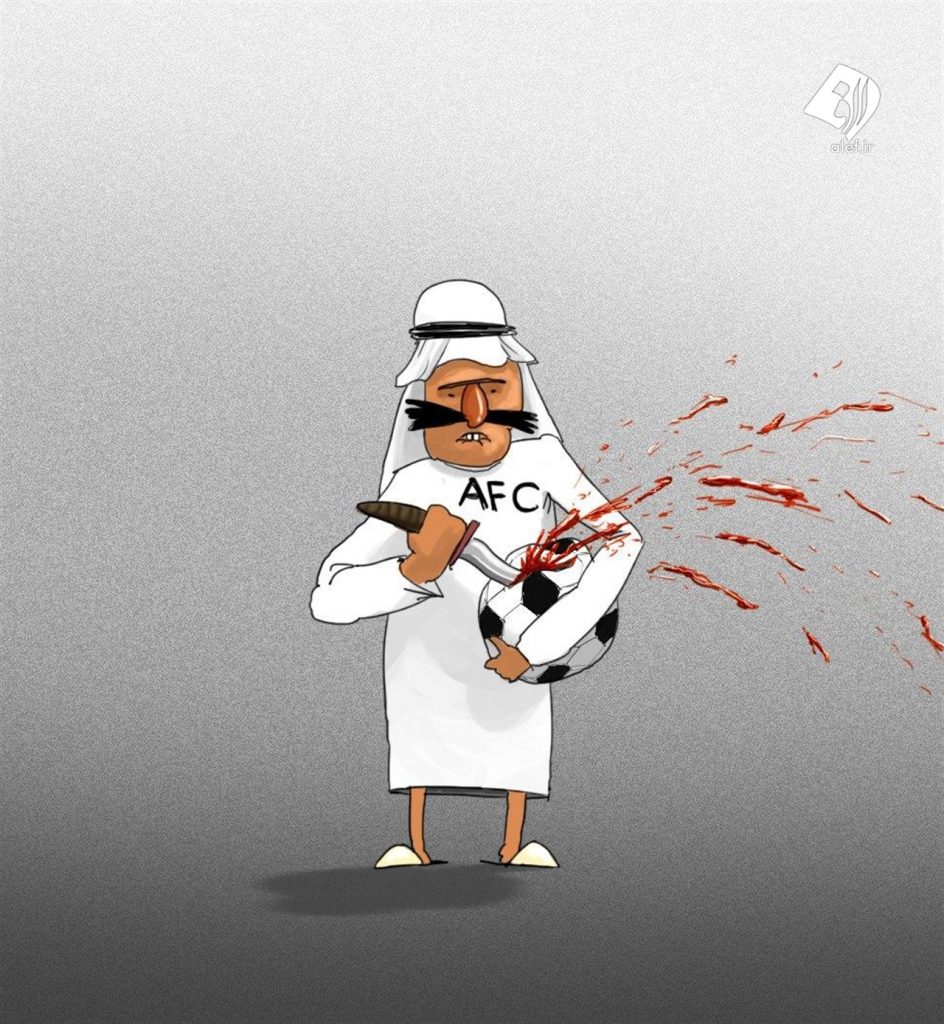
As another example, the women hadn’t been allowed to enter stadiums for watching the men’s matches and the men aren’t allowed for the women’s matches for years. That’s partly rooted in the religious background of the country -especially for the men not watching women- but also in the strict state rules in front of mixing opposite genders in one place… (The officially-stated reason is the unhealthy atmosphere inside the football stadiums not fitting the women’s dignity and serenity.) Reacting this rule, some years ago, FIFA threatened the Iranian football federation that Iran would be suspended from hosting international games if they don’t abandon this rule. A strong campaign also was started inside the country to change it by less-religious youths in online social networks. The result was making a separate part of the stadium seats reserved for the women satisfying both FIFA and the female fans and the religious people and state. It was another example of how sport leaked to politics and how an international organization stood in front of the national norms and rules of the country.
Let me say two other examples. Iranian sports federations enact several rules for national sports regarding national laws and values. One of these is that the women must play with Hijab in all the matches that the men are present as observers, referees, etc. including the games taking place abroad. Despite this law, women are present in many types of sports and they are relatively successful comparing to the other countries in the region.
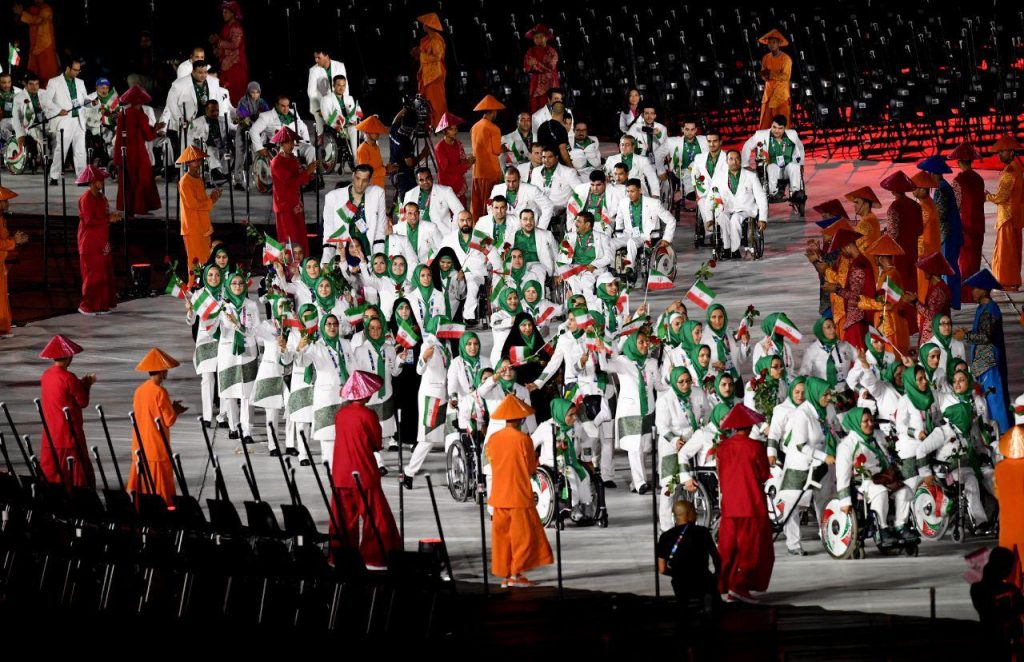
There’s also an unwritten rule that no Iranian individual players or teams play with Israel, as the official position of the country doesn’t realize the existence of Israel. That’s why they always resign from matches with Israel. Even some Iranian athletes put the condition in their international contracts that they won’t play with any Israeli even in a foreign team. However, there are some players who aren’t satisfied with these rules as they lose medals or even are banned from future games because of ‘entering politics into sports’, as stated by the sports confederations. The country tries to compensate these limitations by other means such as extra rewards. But in some cases, the unsatisfied people prefer to exit the country and play for the foreign teams, especially when they are faced with their tempting financial proposals. The truth is that in some cases, there’s no way to act unpolitical but international organizations expect everyone to acquire the politics of the big powers.
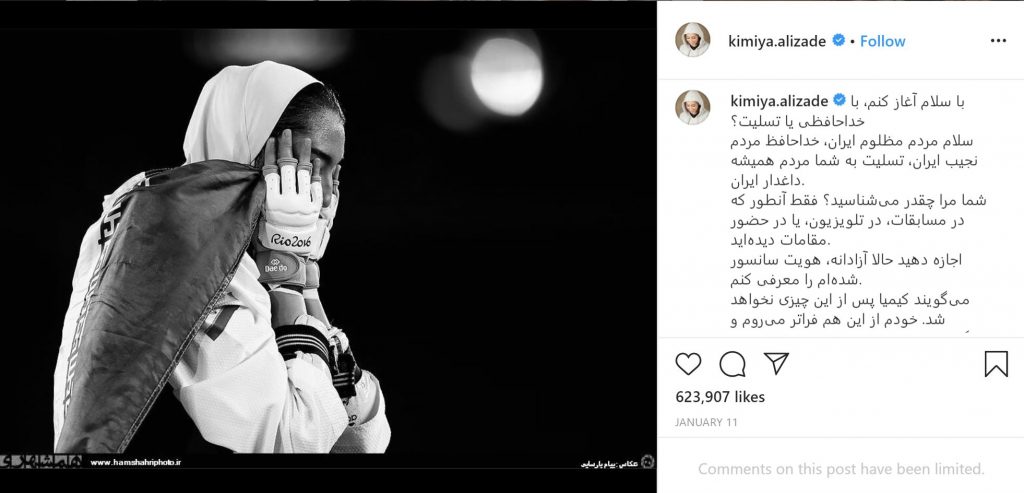
Kimiya Alizade, the Tekwaendo player and the first female medal winner in Olympics, leaving Iran. She complained in this Instagram post about the limitations in Iran as the main reason for her migration. 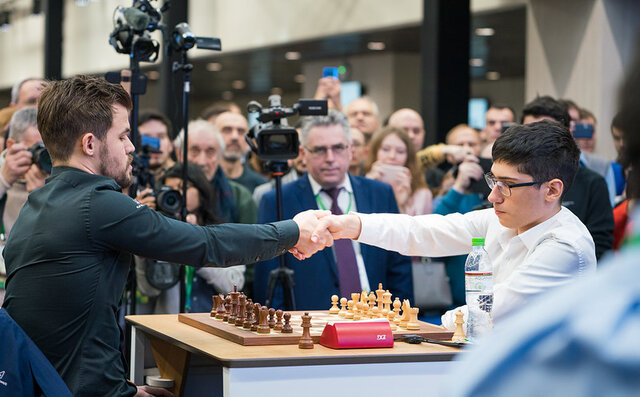
Alireza Firouzja, the Iranian chess Grandmaster teenager, decided to change his nationality probabely because of limitations in playing in front of Israel in Iran.
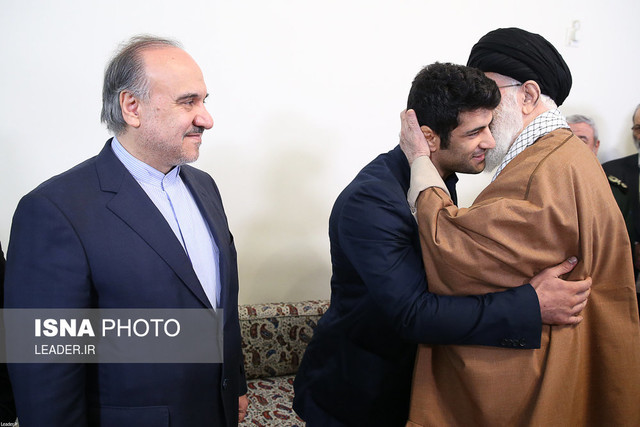
The Supreme Leader of Iran meeting Alireza Karimi, the freestyle wrestler, after he intendedly lost a competition not to face with his next Israeli opponent causing him 6-month ban by UWW. 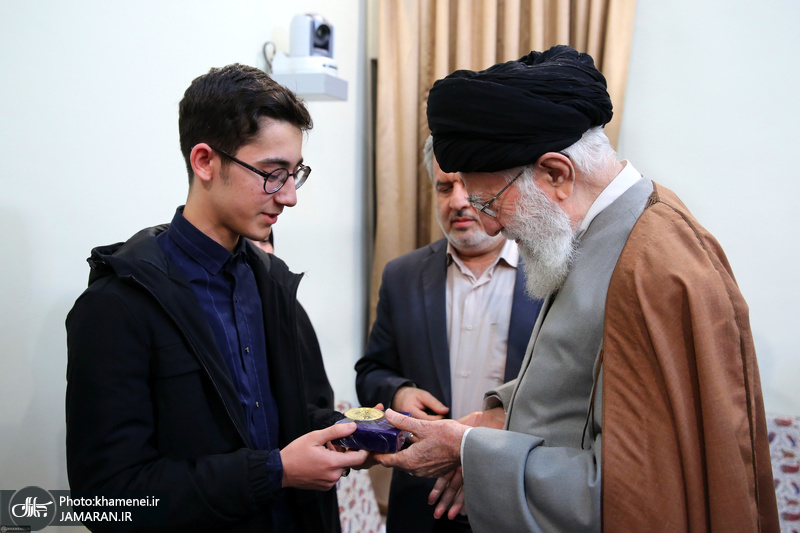
Aryan Gholami, the chess International Master, getting his reward from the supreme leader for resigning to play with an Israeli opponent.



